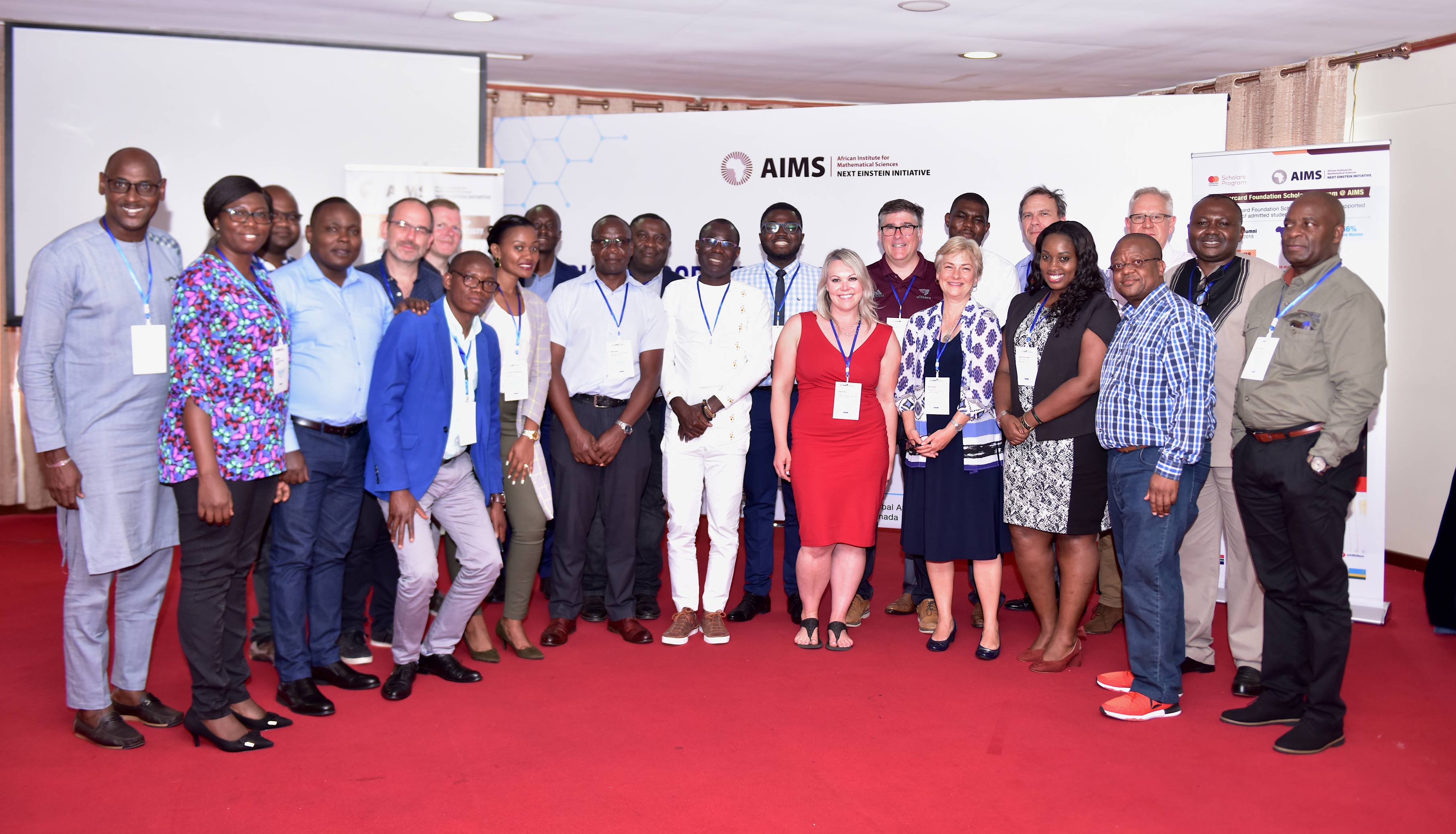The African Institute for Mathematical Sciences (AIMS) in partnership with the University of Waterloo and the University of Ottawa hosted a three-day Work-Integrated Learning (WIL*) workshop from 28–30 October 2019 in Kigali, Rwanda. About 50 participants attended the workshop.
Participants included AIMS staff including: Co-op managers and academic directors, industry partners, senior administrators from local partner universities, and government representatives.
WIL is the term given to an activity or program that integrates academic learning with its application in the workplace. The practice may be real or simulated and can occur in the workplace, at a university, online or face-to-face.
The WIL workshop aimed at facilitating reflexive space for the advancement of the AIMS WIL programs, including the Cooperative Education (Co-op) program, the Skills for Employability (SFE) program and the AIMS-ESMT Industry Immersion program. This workshop was organized within the framework and mandate of the AIMS Industry Initiative to build the necessary capacity to support the implementation of WIL programs across the network.
The workshop was meant to leverage the existing partnership with Mastercard Foundation (MCF) through the MCF Scholars Program and make recommendations for knowledge policies that must be put into place for African governments to make a substantial contribution to WIL programs and the transition of African youth to relevant employment opportunities.
The workshop also intended to raise awareness of advanced approaches to WIL in tandem with AIMS industry partners. Furthermore, it provided participants with in-depth knowledge of Co-op and sensitized industry partners to their role and responsibilities in promoting WIL across Africa.
“Our vision at AIMS is to lead the social &economic transformation of Africa.We strongly believe that successful execution of such programs will strengthen our efforts in easing the transition of African youth to relevant employment opportunities,” Rana Auditto, the Vice President of Operations at AIMS during the opening ceremony.
Participants engaged in discussions among peers, be introduced to the University of Waterloo’s theoretical and empirical approaches to experiential education. Furthermore, the workshop will explore Canadian and African approaches to WIL, provide access to leading practitioners and explore how WIL methodologies and best practices can be used to strengthen the AIMS Co-op Program.
One of the facilitators, and Director for the Professional Development Program at the University of Waterloo, Anne-Marie Fannon said that industry involvement in curriculum development helps in providing tailor made students fit for the workplace.
The workshop also strengthened the AIMS WIL program – primarily Co-op – to ensure that AIMS graduates are well equipped to enter the workforce with essential transferable skill sets while reducing the tension between meeting academic requirements of academic programs and finding time dedicated to building transferable skills.
In addition, it leveraged industry partnerships to implement a sustainable industry engagement strategy across the AIMS-NEI centers and to better identify Co-op placements that are relevant, challenging and hold the employer accountable.
Deliberations at the workshop empowered the implementation team, that was composed of Co-op managers, academic directors and program managers to identify challenges, opportunities and adequately support AIMS students over the course of their WIL pathways.
********************************************************************************************************************************************************
Footnotes
[1]Work Integrated Learning (WIL) is the term given to an activity or program that integrates academic learning with its application in the workplace. The practice may be real or simulated and can occur in the workplace, at the university, online or face-to-face. The Business/Higher Education Roundtable defines nine types of work-integrated
learning; including: (1) apprenticeships, (2) cooperative education (co-ops), (3) internships, (4) mandatory professional practice, (5) field experiences, (6) applied research projects, (7) service learning, (8) incubators/accelerators, and (9) boot camps/hackathons.



